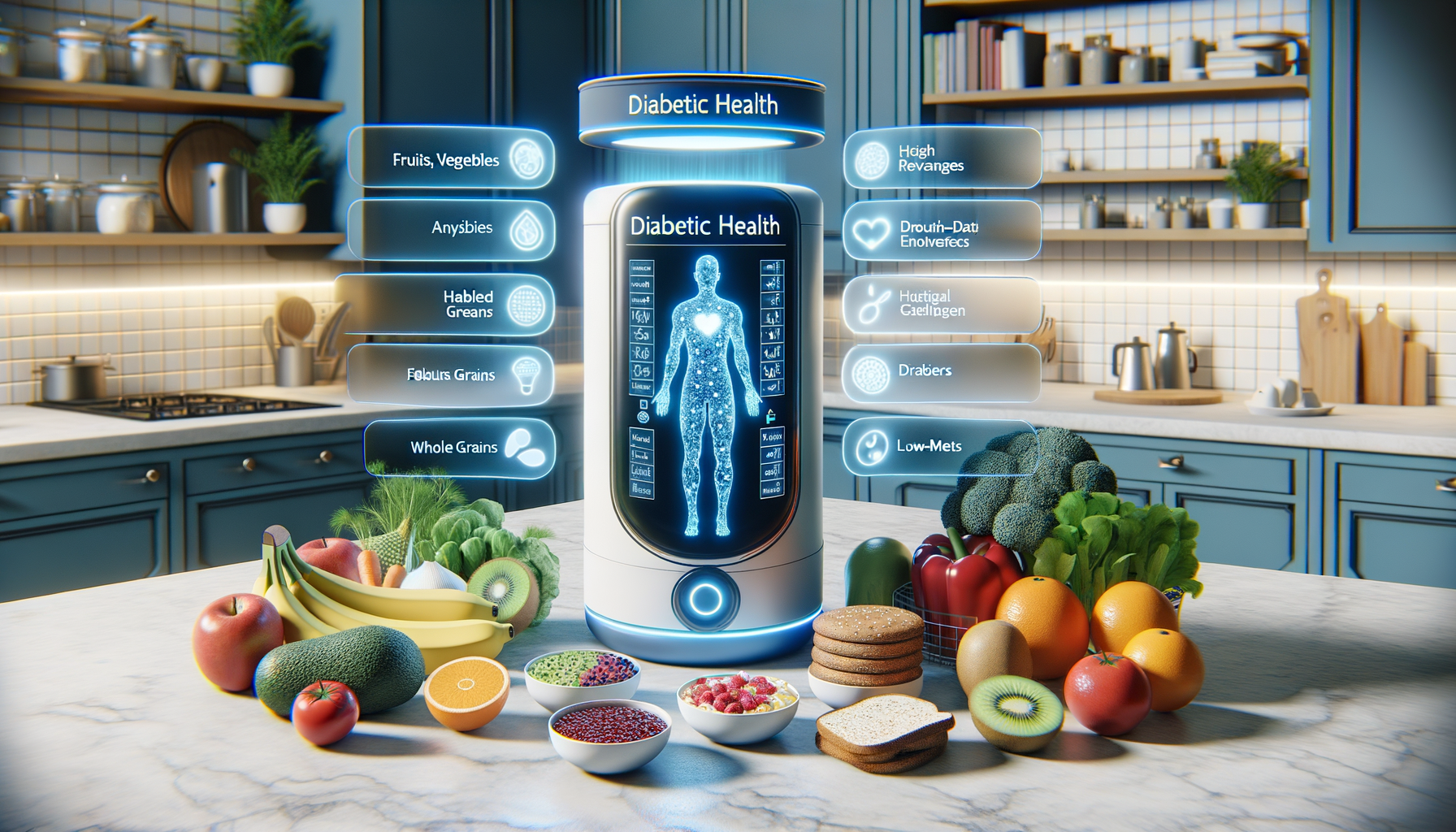Introduction to AI in Diabetic Nutrition
In recent years, artificial intelligence (AI) has made significant strides in transforming various sectors, including healthcare and nutrition. For individuals managing diabetes, AI offers promising solutions to navigate dietary choices effectively. With the help of AI-driven tools, diabetic patients can now personalize their food options to maintain blood sugar levels while enjoying nutritious and appetizing meals. This article delves into the various ways AI is revolutionizing diabetic food choices, ensuring a balance between health and taste.
Understanding Diabetic Dietary Needs
Diabetes is a chronic condition that affects how the body processes blood sugar. Managing diabetes involves careful monitoring of food intake, as certain foods can cause blood sugar levels to spike. A diabetic diet typically focuses on foods that are low in carbohydrates, sugars, and saturated fats while being high in fiber and nutrients. Key components of a diabetic-friendly diet include:
- Whole grains such as quinoa and oats
- Leafy greens like spinach and kale
- Lean proteins including fish and poultry
- Healthy fats from sources like avocados and nuts
AI technology aids in identifying these foods and creating meal plans that align with individual health needs and preferences, making it easier for those with diabetes to adhere to dietary guidelines.
How AI Personalizes Diabetic Meal Plans
AI-driven applications can analyze a user’s health data, dietary preferences, and lifestyle to generate personalized meal plans. These applications consider various factors such as age, weight, activity level, and specific health goals. By leveraging machine learning algorithms, AI can suggest meals that not only meet nutritional requirements but also cater to taste preferences. This personalized approach ensures that diabetic patients receive meals that are both satisfying and healthful, reducing the risk of dietary lapses and improving overall management of the condition.
AI Tools for Monitoring and Managing Diabetes
Beyond meal planning, AI tools are instrumental in monitoring and managing diabetes on a daily basis. Wearable devices equipped with AI capabilities can track blood sugar levels in real-time, providing immediate feedback and alerts to users. This continuous monitoring allows for timely adjustments to diet and medication, enhancing the control over blood sugar fluctuations. Additionally, AI-powered apps can log food intake, physical activity, and other health metrics, offering insights and trends that help users make informed decisions about their diet and lifestyle.
Challenges and Future Prospects of AI in Diabetic Nutrition
While AI presents numerous benefits in diabetic nutrition, it also faces challenges such as data privacy concerns, the need for large datasets to improve accuracy, and the integration of AI tools into everyday life. However, the future holds great promise as advancements in AI technology continue to evolve. Future prospects include more sophisticated AI algorithms that can predict long-term health outcomes based on dietary habits and the development of more intuitive interfaces that make AI tools accessible to a broader audience. As these technologies advance, they will play an increasingly vital role in supporting individuals with diabetes to lead healthier lives.
Conclusion: Embracing AI for a Healthier Diabetic Lifestyle
AI technology is reshaping the landscape of diabetic nutrition by providing personalized, effective, and convenient solutions for managing the condition. By embracing AI-driven tools, individuals with diabetes can enjoy a more tailored approach to their diet, leading to improved health outcomes and a better quality of life. As technology continues to advance, the integration of AI in healthcare and nutrition will undoubtedly become more prevalent, offering innovative ways to support those managing chronic conditions like diabetes.




Leave a Reply